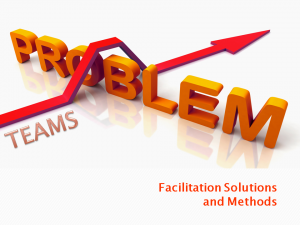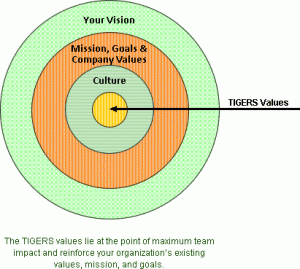 Mistakes. So many are swept under the rug. Why? Fear of repercussions impact the ability to improve problem solving success. As a result, customers receive a faulty product and your brand suffers.
Mistakes. So many are swept under the rug. Why? Fear of repercussions impact the ability to improve problem solving success. As a result, customers receive a faulty product and your brand suffers.
Or, some people spend their entire life striving to be perfect. They vow to never make a mistake. Those employees who live and work this way, actually miss out on a lot of growth and gain. Improved problem solving Success revolves around:
- Identifying how a mistake came about;
- Figuring out what went wrong;
- Solving the problem at the root cause; and,
- Moving on.
Mistakes are an essential part of success. As long as mistakes are viewed as an opportunity to learn and grow, Improved problem solving success is possible. This is opposed to regrets that can never be rectified. As long as problems and mistakes are met with the right attitude, mistakes and problems turn into more opportunities, not less.
Learning from mistakes leads to genuineness, empathy and risk resolution and improved problem solving success.
Mistakes happen. Period. When leaders learn and grow from their mistakes, they are better able to lead team building success. Three of the six TIGERS principles are directly involved in improved problem solving success. They are genuineness, empathy, and risk resolution.
Encourage an ownership mentality to improve problem solving success.
A mistake doesn’t have to derail an entire task or project. When team members approach problems from an ownership mentality, the desire to fix mistakes is strong.
Business owners already have the right attitude for innovation. Their incomes are directly tied to their decisions and mistakes. If they want to keep their company moving forward, they cannot dwell on past mistakes. And they must encourage employees to be entrepreneurs, too.
Business owners and employees with an ownership mentality, understand that mistakes are part of life. They also understand that they learn and grow from these experiences. When you want your team to adopt this same mentality:
- Eliminate their fear of repercussions from making mistakes;
- Praise employees for taking responsibility for their actions; and,
- Tell stories about mistakes and how employees discovered them and corrected them in monthly staff meetings.
This allows the entire team to learn from those experiences.
When CEO’s encourage an ownership mentality to improve problem solving success, employees who feel united by growing and learning together develop into high performance teams.For one reason, learning focuses employees on the future rather than the past. This up-shifts employee engagement.
The up-shifting process helps employees to lift one another up. It builds good relationships. It also promotes forgiveness so regressions and mistakes can be let go. If you have ever worked in an organization with perennial mistake grudges, you understand why talented employees leave.
Reflect to improve problem solving success.
Building a genuineness inspired work culture requires both team and individual self-reflection. Managers spend a great deal of their time answering emails and attending meetings. Unless time for self-reflection is scheduled, little time is available for self-improvement strategies.
When managers fail to engage in slow and deliberate self-reflection, their blind spots widen. As a result, it is difficult to facilitate innovative problem solving solutions. It is also difficult to inspire creative ideas in the workplace. It’s much like driving down a winding road with the gas pedal stuck. There is no time to focus on what is causing the vehicle to escalate or determine how to stop it.
Instead, managers who work on leadership skill development schedule in time for unstructured thinking. They stick to this schedule rather than checking emails or answering unnecessary phone calls. The following list of prompt questions can help with self-reflection:
- How did the day go? How did the meeting go?
- Did you have time to talk with an employee who came to you with a question or comment? How did the conversation go? Did the conversation result in a plan?
- What is your employee follow up plan?
- Did you get angry and short with employees? What was the trigger?
- How did your time management help you get everything done today?
- Were you able to bring a concern to light with upper management or your supervisor? What worked? What would you do differently?
Focus on strengths to improve problem solving success.
According to the blog post Improve Productivity by Focusing on Strengths and Genuineness, leaders improve employee engagement and productivity by focusing on their team members’ strengths. To create this type of culture, leaders must be productivity-focused and understand their own strengths and limitations.
This includes:
- Asking for help;
- Delegating; and,
- Taking (and encouraging) regular breaks.
These activities set an example for the rest of the team. It helps employees to do the same.
Focusing on strengths doesn’t mean that mistakes won’t happen. However, when mistakes do occur, team members will have better self-confidence. They will also be better equipped to move forward.
Provide empathy training to improve problem solving success.
Both employees and managers are better equipped to deal with mistakes when they have empathy training. For example, team members are more disengaged when empathy is lacking, states Empathy Training Offers a Positive Return on Investment.
Disengaged workers are more likely to make mistakes. They are also less skilled in handling them.
Empathy in the workplace starts at the top and works its way down to the lowest level of operation. Empathy training and skill development is crucial in order to model the desired behaviors so it translates to employees. When a manager isn’t empathetic with their team members, other employees won’t see the need to be either. This results in an non-empathetic work culture that can not fix problems or recruit and retain highly talented team-based employees.
Mistakes happen. How CEO’s deal with them is the most important aspect to improve problem solving success. When managers and employees learn from their mistakes, the corporate culture reflects genuineness, empathy and risk resolution. These three principles are measurable within workforce culture and department dynamics.
To move in this direction:
- Change your outlook and view your problems as opportunities to learn and grow.
- Understand that mistakes are stepping stones to success.
- Develop the employee entrepreneurial mindset so mistakes are dealt with immediately rather than sweeping them under the rug to impact your product branding and customer service.
- Encourage self-reflection time so both leaders and employees are encouraged toward self-improvement.
- Encourage leaders to develop their employee’s strengths.
- Teach and encourage empathy in the workplace for both managers and employees.
With these six strategies, improve problem solving success. Mistakes will become an asset for success.
Care to dig deeper into this topic?
The following articles and resources provide more insight into this topic:
- Fess It, Then Fix it: Studying Mistakes Is How You Find Opportunities to Innovation
- How to Regain the Lost Art of Reflection
- Risk and Creating a Culture of Innovation
- Improve Productivity by Focusing on Strengths and Genuineness
- Empathy Training Offers a Positive Return on Investment
- Download a sample report for the TIGERS Workforce Behavioral Profile
Copyright, TIGERS Success Series, Inc. by Dianne Crampton
About TIGERS Success Series, Inc.
 TIGERS® Success Series provides a comprehensive and robust system for improving both your work environment and profitability.
TIGERS® Success Series provides a comprehensive and robust system for improving both your work environment and profitability.
We specialize in training your managers in group facilitation methods that build workforce cooperation and high performance team dynamics. Scaled to grow as your organization and leadership performance grows, our proprietary Team Behavior Profile and Managment training workshops are based on the six principles we have found to be the right mix to make this happen.
The TIGERS 6 Principles are Trust, Interdependence, Genuineness, Empathy, Risk and Success. Born from our many years of business, psychology, and educational group dynamic research, and subsequent four years of independent evaluation, we instill and sustain behaviors that improve work group performance and talent retention for measurable ROI.
TIGERS has served committed leaders who desire enhanced cooperation among departments, teams, managers and individual employees. This heightened level of cooperation leads to improved revenue, purpose, commitment and impact. Employees quit companies because they don’t get along with leaders and co-workers. Work culture refinement and behaviors that build strong relationships erase this trend remarkably fast.
For more information or to request a presentation to your group or association, call 1+541-385-7465 or visit https://corevalues.com .
The mistake is an essential part of solving problems. These are the main things that help in solving the problems. Thank you for sharing the informative post.
I can’t agree more. The learnings from mistakes align our brains in a way that we learn to dodge mistakes that we may be doing. The process certainly conditions our mind to solve certain problems in a best possible and quickest way! Well written!
Thank you.
Thanks for sharing. I read many of your blog posts, cool, your blog is very good.